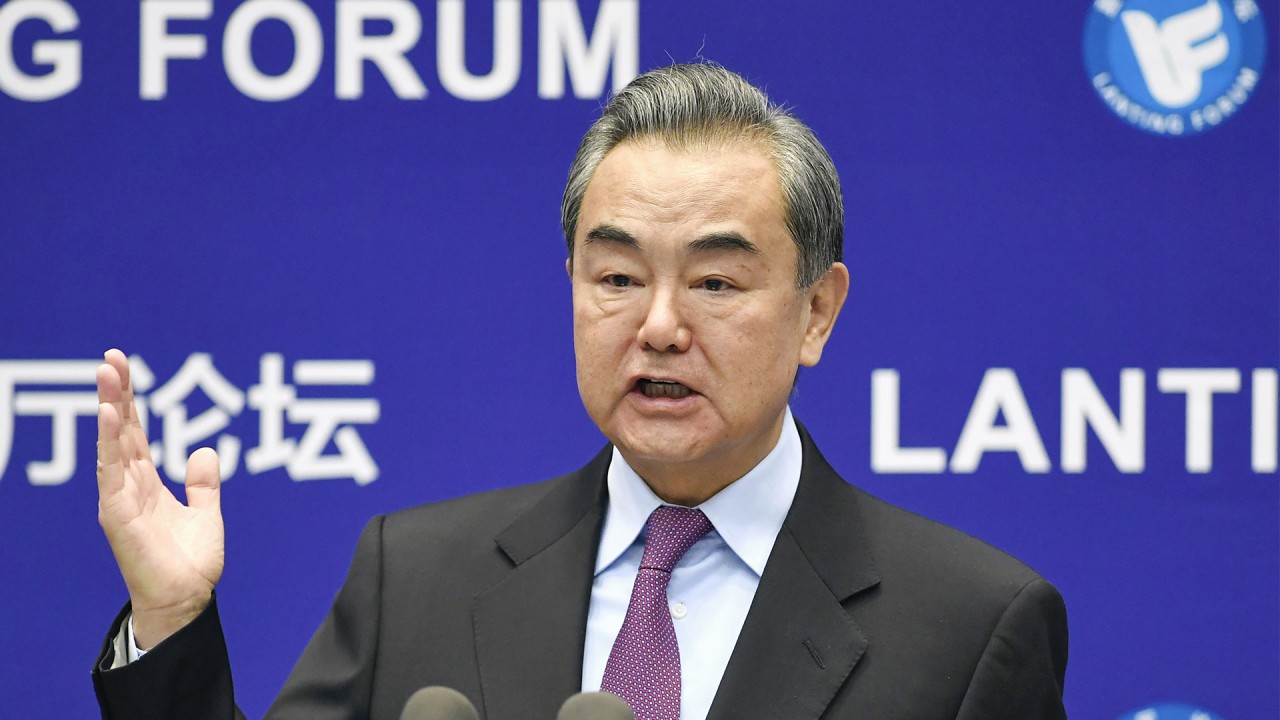
Joe Biden orders review of US supply chains’ reliance on overseas producers
- Federal agencies must increase domestic production in four areas: semiconductors, pharmaceuticals, rare-earth elements, automobile batteries, Biden says
- Biden vows to work closely with ‘trusted friends and partners – nations that share our values – so that our supply chains can’t be used against us as leverage’
The order requires federal agencies to begin a 100-day review process to find ways to increase domestic production in four areas: semiconductors, pharmaceuticals, automobile batteries and rare-earth elements that are crucial to tech and defence.
“We shouldn’t have to rely on a foreign country, especially one that doesn’t share our interests, our values, in order to protect and provide [for] our people during a national emergency,” Biden said at the signing, though he did not mention China by name.
“Building resilience will mean increasing our production of certain types of elements here at home. It means working more closely with our trusted friends and partners – nations that share our values – so that our supply chains can’t be used against us as leverage.”

01:27
China calls for dialogue with the US to restore ‘deteriorating relations’
Shortages of personal protective equipment such as surgical masks and gloves devastated front-line health care workers as the Covid-19 pandemic surged a year ago. More recently, a chip shortage has forced automakers to reduce factory shifts and cut production.
At a White House press briefing before the signing, the action was described as necessary to help the US compete in the world.
“Our supply chain should not be vulnerable to manipulation by competitor nations,” said Peter Harrell, the senior director for international economics and competitiveness on the National Security Council.
The Biden administration, which will also look to work with international partners to ensure stable and reliable supply chains, asked for a separate one-year review to look into the production of equipment for public health and biological preparedness; defence; transport and energy; and the agriculture and food production sectors.
China’s new trade chief urges US to return relations to right track
Before signing the executive order, Biden met with a bipartisan group of lawmakers to discuss supply-chain issues that have become more prominent during the pandemic. After the meeting, Senator John Cornyn, a Republican from Texas, said it had been a “very positive” discussion.
“China is currently building 17 semiconductor fabrication manufacturing facilities, while the United States is in the early stages of building a single facility in Arizona,” said Cornyn, stressing the urgency of the issue.
Representative Michael McCaul, a Texas Republican who sits on the House Foreign Affairs Committee, also attended and said: “The Chinese Communist Party is spending billions of dollars to become the leader in the production of semiconductors, and we cannot fall behind and endanger our economic and national security.”
The chip shortage has forced Ford Motors to cancel shifts at two plants that make F-150 pickup trucks, its most profitable model. General Motors, Honda, Stellantis (formerly Fiat Chrysler) and Toyota have also had to slow production.

Some companies that produce vehicles in the US are building them without computer chips – which control engines, brakes, transmissions and other tasks – so they can be installed once more semiconductors are available.
Officials said the administration could use the Defence Production Act, a power the president can invoke to expedite production of materials vital to the national interest. Biden has used it for vaccine production and securing more Covid-19 equipment.
Stacy Rasgon, a Bernstein Research analyst, said the current chip shortage for auto production was “much more a function of the supply chain whipsaw” caused by the pandemic, and had less to do with whether “the US had let its semi manufacturing footprint slip”.
But, he added, “If worries over the current shortages serve to jump-start the discussion that’s probably a good thing.”
Rare earth: the next front in its supply chain war with China
Senate Majority Leader Chuck Schumer said on Tuesday that he has directed committees to draft a bipartisan bill based on legislation he proposed last May seeking US$100 billion to spur research in key tech areas such as artificial intelligence, quantum computing and semiconductors.
Also on Tuesday, former Google CEO Eric Schmidt, chairman of the National Security Commission on Artificial Intelligence, called on the federal government to fast-track development of emerging technology, including semiconductors, to retain its lead in space.
“I suggest we take American ingenuity, which is profound, with some form of incentive system to close this gap and put those semiconductor foundries in the United States and use them for both commercial but also military purposes,” Schmidt said at a Senate Armed Services Committee hearing.
Additional reporting by Jacob Fromer

